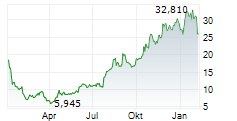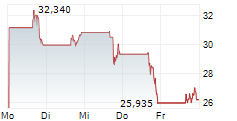- Data show verekitug prevents TSLP binding to the TSLP receptor by occupying ligand binding sites -
- Additionally, findings show that verekitug outcompetes TSLP in the presence of preformed heterodimeric receptor complexes -
- Data support the potential of verekitug's unique mechanism of action to achieve a differentiated therapeutic effect across a broad range of TSLP-driven severe respiratory diseases -
WALTHAM, Mass., Sept. 30, 2025 (GLOBE NEWSWIRE) -- Upstream Bio, Inc. (Nasdaq: UPB), a clinical-stage company developing treatments for inflammatory diseases, with an initial focus on severe respiratory disorders, today presented structural and mechanistic data showing verekitug's potent pharmacodynamic activity through its unique approach of targeting the thymic stromal lymphopoietin (TSLP) receptor. Data were presented at the European Respiratory Society (ERS) Congress being held September 27 - October 1, 2025, in Amsterdam, Netherlands.
"We continue to deepen our understanding of verekitug's unique TSLP receptor-targeting mechanism and its role in driving the rapid and durable effects that have been demonstrated to date," said Aaron Deykin, MD, Chief Medical Officer and Head of R&D of Upstream Bio. "In the clinic, we are also now beginning to see that the potency driven by this mechanism of action can translate into a differentiated clinical profile with our recently reported Phase 2 top-line clinical data in patients with chronic rhinosinusitis with nasal polyps where verekitug delivered statistically significant and clinically meaningful effects on multiple endpoints when administered only once every 12 weeks. We look forward to continuing to build the clinical dataset for verekitug with Phase 2 top-line data in severe asthma anticipated in the first quarter of 2026."
Preclinical and clinical data to date demonstrate verekitug's highly potent inhibition of the TSLP receptor. In clinical trials, verekitug has demonstrated rapid, substantial, and sustained TSLP receptor inhibition for up to 24 weeks after the last dose. This unique mechanism of action may translate to a differentiated clinical profile with less frequent dosing as compared to currently approved biologic therapies.
Mechanistic studies were performed to elucidate drivers of this high magnitude of effect seen with verekitug's TSLP receptor inhibition. Data presented are summarized as follows:
- With high affinity binding (KD < 1 pM) to the TSLP receptor, verekitug outcompetes TSLP binding to the TSLP receptor even in the presence of preformed heterodimeric receptor complexes, inhibiting TSLP:TSLP receptor interaction.
- The high-resolution crystal structure reveals that verekitug binds and occupies most of the TSLP binding sites on the TSLP receptor.
- Semi-mechanistic pharmacokinetic/pharmacodynamic (PK/PD) models indicate that lower abundance and slower turnover of the TSLP receptor compared to the TSLP ligand may drive the greater potency of verekitug, observed in vitro and across clinical datasets, compared to published data for tezepelumab.
- These findings provide a mechanistic explanation for the empirically observed greater potency of targeting the TSLP receptor with verekitug as compared with targeting the TSLP ligand.
A digital version of the presentation can be found on the Publications section of the Upstream Bio website.
About TSLP and TSLP Receptor Blockade
Thymic stromal lymphopoietin (TSLP) is a cytokine that is a key driver of the inflammatory response in major allergic and inflammatory diseases, such as asthma, where disruption of TSLP signaling has been clinically validated as an effective therapeutic strategy.
TSLP activation is one of the first events in the inflammatory cascade stimulated by allergens, viruses and other triggers, initiating the activation of downstream targets such as IL-4, IL-5, IL-13, IL-17 and IgE. Because TSLP is a target upstream in the inflammatory cascade, blocking the TSLP receptor presents an opportunity for a single treatment to impact the drivers of multiple pathological inflammatory processes across a broad set of diseases.
About Verekitug
Verekitug is a novel recombinant fully human immunoglobulin G1 (IgG1) monoclonal antibody that binds to the TSLP receptor and inhibits proinflammatory signaling initiated by TSLP. It is the only known monoclonal antibody currently in clinical development that targets and inhibits the TSLP receptor. Verekitug has advanced into three separate global, placebo-controlled, randomized Phase 2 clinical trials including the recently completed VIBRANT trial (NCT06164704) in patients with chronic rhinosinusitis with nasal polyps (CRSwNP), which demonstrated that verekitug, dosed at 100 mg once every 12 weeks, met both the primary and secondary endpoints at Week 24 and was generally well tolerated. Two additional ongoing clinical trials include the VALIANT trial (NCT06196879) in patients with severe asthma and the VENTURE trial (NCT06981078) in patients with moderate-to-severe chronic obstructive pulmonary disease (COPD). Additionally, in May 2025, Upstream Bio initiated the VALOUR trial (NCT06966479), a long-term extension study in eligible participants with severe asthma who completed the VALIANT Phase 2 clinical trial.
In preclinical studies, verekitug demonstrated high occupancy of the TSLP receptor and potent inhibition of TSLP signaling. Additionally, verekitug inhibited cytokine production from both CD4+ T cells and ILC2 cells and completely suppressed skin allergic reactions in a non-human primate model, suggesting that it may be effective against multiple types of inflammation.
Three Phase 1 clinical trials have been completed for verekitug, including a Phase 1 single-ascending dose (SAD) clinical trial and a Phase 1b multiple-ascending dose (MAD) clinical trial. In these trials, verekitug was well tolerated, had no clinically meaningful immunogenicity, and showed a predictable and consistent pharmacokinetic profile and high subcutaneous bioavailability. In patients with asthma, verekitug led to >50% reductions in fractional exhaled nitric oxide (FeNO) and blood eosinophils that were rapid and sustained for up to 24 weeks after the last dose in the Phase 1b MAD trial.
About Upstream Bio
Upstream Bio is a clinical-stage biotechnology company developing treatments for inflammatory diseases, with an initial focus on severe respiratory disorders. Upstream Bio is developing verekitug, the only known antagonist currently in clinical development that targets the receptor for thymic stromal lymphopoietin (TSLP), a cytokine which is a clinically validated driver of inflammatory response positioned upstream of multiple signaling cascades that affect a variety of immune mediated diseases. Upstream Bio has advanced this highly potent monoclonal antibody into separate Phase 2 trials for the treatment of chronic rhinosinusitis with nasal polyps (CRSwNP), severe asthma and chronic obstructive pulmonary disease (COPD). Upstream Bio's team is committed to maximizing verekitug's unique attributes to address the substantial unmet needs for patients underserved by today's standard of care. To learn more, please visit www.upstreambio.com.
Forward-Looking Statements
This press release contains "forward-looking statements" within the meaning of Section 27A of the Securities Act of 1933 and Section 21E of the Securities Exchange Act of 1934, each as amended. These statements may be identified by words such as "aims," "anticipates," "believes," "continue," "could," "estimates," "expects," "forecasts," "goal," "intends," "may," "plans," "possible," "potential," "predict," "project," "seeks," "should," "target," "will" and variations of these words or similar expressions. Any statements in this press release that are not statements of historical fact may be deemed to be forward-looking statements. These forward-looking statements include, without limitation, express or implied statements regarding: the clinical development of verekitug for the treatment of severe asthma, CRSwNP and COPD, including the initiation, timing, progress and results of ongoing and planned clinical trials; expectations for future discussions with regulatory authorities and the potential of the endpoints of the Company's clinical trials to produce data that could support submissions for product approval; expectations regarding the differentiation, safety, efficacy or tolerability of verekitug; expectations regarding the translation of PK/PD modeling data of verekitug to clinical effects; and assessments comparing non-head-to-head clinical data of verekitug to published data for tezepelumab. Any forward-looking statements in this press release are based on the Company's current expectations, estimates and projections only as of the date of this release and are subject to a number of risks and uncertainties that could cause actual results to differ materially and adversely from those set forth in or implied by such forward-looking statements. Readers are cautioned that actual results, levels of activity, safety, efficacy, performance or events and circumstances could differ materially from those expressed or implied in the Company's forward-looking statements due to a variety of risks and uncertainties, which include, without limitation, risks and uncertainties related to: Upstream Bio's ability to advance verekitug through clinical development, and to obtain regulatory approval of and ultimately commercialize verekitug on the expected timeline, if at all; the initiation, timing, progress and results of clinical trials; Upstream Bio's ability to fund its development activities and achieve development goals; Upstream Bio's dependence on third parties to conduct clinical trials and manufacture verekitug, and commercialize verekitug, if approved; Upstream Bio's ability to attract, hire and retain key personnel, and protect its intellectual property; Upstream Bio's financial condition and need for substantial additional funds in order to complete development activities and commercialize verekitug, if approved; regulatory developments and approval processes of the U.S. Food and Drug Administration and comparable foreign regulatory authorities; Upstream Bio's competitors and industry; and other risks and uncertainties described in greater detail under the caption "Risk Factors" in Upstream Bio's most recent Annual Report on Form 10-K and Quarterly Report on Form 10-Q, as well as any subsequent filings with the SEC. Any forward-looking statements represent Upstream Bio's views only as of today and should not be relied upon as representing its views as of any subsequent date. Upstream Bio explicitly disclaims any obligation or undertaking to update any forward-looking statements contained herein to reflect any change in its expectations or any changes in events, conditions or circumstances on which any such statement is based except to the extent required by law, and claims the protection of the safe harbor for forward-looking statements contained in the Private Securities Litigation Reform Act of 1995.
Investor and Media Contact:
Meggan Buckwell
Director, Corporate Communications and Investor Relations
ir@upstreambio.com



